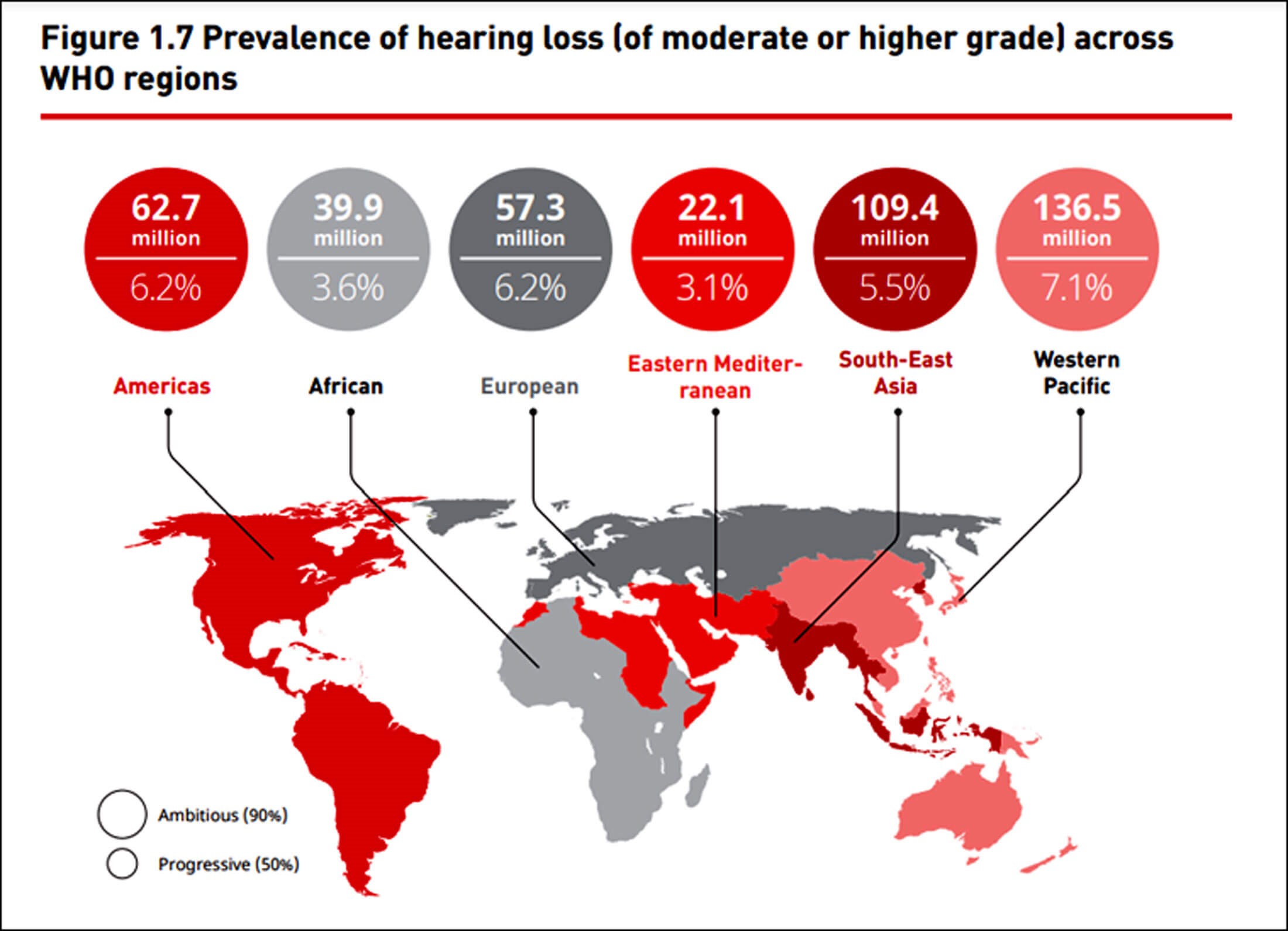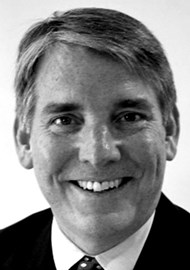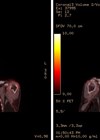IFOS promises to be a multidimensional meeting, with contributions from speakers from all corners of the world covering a huge array of subjects. We hear about how the global health aspects of hearing loss will be covered in the congress.
Hearing loss is the second most prevalent health condition globally with higher estimated health burden than stroke, colorectal cancer, or breast cancer. Approximately one in five people globally have some degree of hearing loss, while roughly 6% of the world’s population has disabling hearing loss (>40 dB) [1,2].
The risk of hearing loss is greatest in low- and middle-income countries (LMIC) and in older individuals. Thus, the hearing loss prevalence is growing as the global population ages. Hearing loss has significant consequences at both ends of the lifespan. In older individuals, it is associated with dementia and depression. The Lancet Commission report on dementia considers hearing loss to be the largest preventable factor contributing to dementia [3]. Although less common, even mild untreated hearing loss in children is associated with an impairment of language development and educational success [4].
Fortunately, half of hearing loss cases are preventable and advances in technology have improved the potential to provide care to affected individuals. Many cases of hearing loss are directly related to treatable diseases such as chronic otitis media, and others are secondary to preventable exposures such as noise, ototoxic medications, and environmental toxins. Expanded access to cochlear implants, tablet-based and automated screening systems, and low-cost hearing aids provide opportunities to improve hearing healthcare.
Regrettably, this care is not yet available to the growing population that needs it. Less than 20% of adults with moderate-to-severe hearing loss use a hearing aid and <1% of eligible patients globally have access to cochlear implants [5]. Likewise, surgical treatment for chronic otitis media is available to only a small percentage of affected patients in LMIC. Cost and access are the primary barriers to this care, and these disproportionately affect people of lower socioeconomic status and marginalised ethnicities. Otolaryngology and audiology workforce shortages in LMIC are too severe to fully address this unmet need. Even in high-income settings where there are adequate hearing healthcare professionals, healthcare systems to deliver this care are often fragmented and ineffective.

Prevalance of hearing loss (of moderate or higher grade) across WHO regions [6].
It is essential that primary care providers and non-physician community health workers are engaged and involved with this work. However, otolaryngologists and audiologists are called upon to take a leadership role in developing effective healthcare systems, planning public health prevention measures, and providing critical evidence to support this effort. Attendees at the IFOS meeting in Dubai will have several opportunities to learn more about the global burden of hearing loss and our collective responsibility to lead this effort.
The Coalition for Global Hearing Health, a non-profit membership organisation founded in 2010, will host a symposium discussing the most up-to-date evidence on the severity and causes of hearing globally and strategies to improve care. In this session, Dr Carolina Der (Chile) will discuss epidemiological estimates prepared for the Lancet Commission on Hearing Loss that reveal the high prevalence of hearing loss from preventable causes, such as the widespread use of ototoxic medications. John Newall (Australia) will discuss the recent findings of the United Nations At-Scale Survey of hearing loss in LMIC. This study sheds light on the necessary barriers to provide hearing devices in these settings and reveals higher severity of hearing loss in these settings than previously expected. The session will also include recent work directed by Susan Emmett (USA) in concert with the Lancet Commission on Hearing Loss and presented by Rolvix Patterson (USA) on the global barriers to ear and hearing care. Finally, Asitha Jayawardena (USA) will discuss the utilisation of innovative technology and community health workers in Haiti to expand hearing loss services for children.
"Less than 20% of adults with moderate-to-severe hearing loss use a hearing aid and <1% of eligible patients globally have access to cochlear implants"
In a separate event, Dr Shelly Chadha, the WHO Medical Officer for Prevention of Deafness and Hearing Loss, will present a keynote lecture entitled ‘Ear and hearing care for all - let’s make it a reality’. Dr Chadha will provide a compelling overview of the status of hearing loss in the world and outline the ways in which our professions can become more involved in this global health crisis. A central pillar of Dr Chadha’s work at the WHO has been to establish the World Hearing Forum. In yet another event, representatives of this forum will present their work strengthening advocacy efforts through World Hearing Day (3 March), decreasing noise-induced hearing loss through the ‘Make Listening Safe’ campaign, increasing the influence of the recently published World Report on Hearing, and developing ‘changemakers’ who can advocate through their influence or personal stories. Last, but not least, IFOS attendees will have an opportunity to learn about the OHNS Global Initiative, an organisation devoted to understanding and improving access to all aspects of our specialty.
All of these sessions will enhance the understanding of global hearing loss for IFOS attendees and provide numerous opportunities to become involved with this global health effort. On behalf of all involved, we hope to see you there.
References
1. GBD 2019 Hearing Loss Collaborators (2021). Hearing loss prevalence and years lived with disability, 1990-2019: findings from the Global Burden of Disease Study 2019. Lancet 2021;397(10278):996-1009.
2. Chadha S, Kamenov K, Cieza A. The world report on hearing, 2021. Bull World Health Organ 2021;99(4):242-A.
3. Livingston G, Huntley J, Sommerlad A, et al. Dementia prevention, intervention, and care: 2020 report of the Lancet Commission. Lancet 2020;396(10248):413-46.
4. LeClair KL, Saunders JE. Meeting the educational needs of children with hearing loss. Bull World Health Organ 2019;97(10):722-4.
5. Orji A, Kamenov K, Dirac M, et al. Global and regional needs, unmet needs and access to hearing aids. Int J Audiol 2020;59(3):166-72
6. World Health Organization. World Report on Hearing. Geneva, Switzerland. 2021.
www.who.int/publications/i/item/world-report-on-hearing.
Last accessed October 2022.










